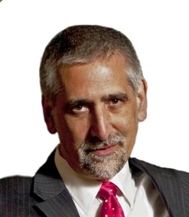One Man’s Fight against Bureaucratic Tyranny Moves On-Campus
August 1, 2016
Beating a people into submission doesn’t happen overnight. It proceeds in stages, and requires long-term leveraging of institutions and appeals to moral authority to justify ever-increasing levels of government coercion. Fortunately, it’s not a one-way street, and there are ways to fight back.
Playing the long game against such institutions requires character, perseverance, and courage. Few exemplify these virtues as much as famed civil rights attorney Harvey Silverglate, whom I interviewed for RealClear Radio Hour. You can listen to our conversation here.
Harvey Silverglate looks and sounds like a character actor straight out of central casting if you were to ask for “a rumpled New York Jewish lawyer who talks like Moses if he had gone to Harvard.” And like Moses—if he were to spend 50 years as a litigator—the fire in his belly burns undiminished. There is nothing he relishes more than a righteous fight.
Silverglate gives no quarter battling bureaucratic tyranny on two fronts—overcriminalization and campus speech restrictions.
His now-classic book, Three Felonies a Day: How the Feds Target the Innocent, lays bare the dirty tricks federal prosecutors use to railroad defendants into plea bargains without getting their day in court. These overzealous prosecutors’ weapon of choice is the growing mountain of laws and regulations emanating from Washington that turn anyone into a felon. Today, broad, loosely worded “conspiracy” and “wire-fraud” statutes serve as Uncle Sam’s equivalent of the Soviet charge of “hooliganism” used to jail dissidents.
While former Secretary of State Hillary Clinton can use a mens rea defense to escape the consequences of her email shenanigans, others facing federal prosecution don’t have that option. Unintentionally and unknowingly breaking some vague, overly expansive, and obscure regulation can still be punished with lengthy jail terms, egregious fines, and personal ruin. Just ask Dinesh D’Souza, singled out for technical violations of campaign finance laws.
The potential for abuse is staggering. Federal prosecution is inherently selective, because the majority of the adult population would be in jail if it weren’t.
And here is where the politics come in. I asked Silverglate, given that prosecutors are human and have party affiliations, and in many cases political ambitions, how do they avoid the moral hazard of using the power of their offices to punish or intimidate political opponents? “They don’t,” he answered. “They relish the moral hazard.”
To read the rest of the column click here.

Leave a comment